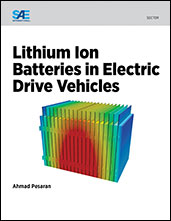Technical Paper
Water and Heat Balance in a Fuel Cell Vehicle with a Sodium Borohydride Hydrogen Fuel Processor
2003-06-23
2003-01-2271
The National Renewable Energy Laboratory (NREL) collaborated with Millennium Cell and DaimlerChrysler to study heat and water management in a sodium borohydride (NaBH4) storage/processor used to supply hydrogen to a fuel cell in an automotive application. Knowledge of heat and water flows in this system is necessary to maximize the storage concentration of NaBH4, which increases vehicle range. This work helps evaluate the NaBH4 system's potential to meet the FreedomCAR program technical target of 6 wt% hydrogen for hydrogen storage technologies. This paper also illustrates the advantages of integrating the NaBH4 hydrogen processor with the fuel cell.

